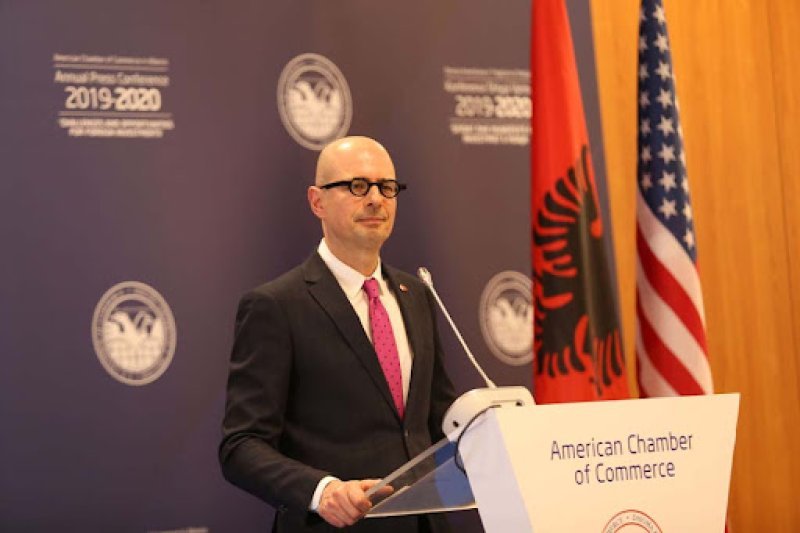AmCham Opposes Draft Law on Fiscal Amnesty
The American Chamber of Commerce in Albania has opposed the draft law on fiscal amnesty. In a statement, the Chamber says that the draft law does not provide sufficient guarantees that individuals implicated in criminal activity will be excluded from the amnesty.
In conclusion, the American Chamber of Commerce in Albania assesses that the risks of the law are greater than the benefits and recommends its withdrawal.
"The American Chamber of Commerce in Albania expresses its concern over the fiscal amnesty draft law, which has entered the public consultation phase, at a sensitive moment of Albania's EU membership. Our assessment is that the draft law does not provide sufficient guarantees that individuals implicated in criminal activity will be excluded from the amnesty. If passed, the legislation would undermine efforts to improve the business and investment climate by rewarding unfair competition. We also estimate that Albania's position in international monitoring programs on money laundering would be jeopardized and, as a result, the country's reputation would be weakened.
As a conclusion, the American Chamber of Commerce in Albania states that the risks of the new draft law significantly exceed its benefits and recommends the withdrawal of this initiative."
The Socialist government has proposed fiscal amnesty. No politician, state official, judge, prosecutor or their family members can benefit from this amnesty. Illegal work is declared as the main subject of the amnesty. Beneficiaries are intended to be immigrants who over the years have secured income from various undeclared jobs.
Meanwhile, the opposition has opposed the government's initiative, which it considers as a way to formalize crime money.
The European Commission has also expressed reservations about the fiscal amnesty, saying it weakens Albania's anti-money laundering controls.
"The commission highlighted serious concerns about the current draft law on fiscal amnesty. It would weaken Albania's anti-money laundering controls while doing little to enhance the tax administration's ability to improve future compliance with tax requirements," the Commission's statement said.













